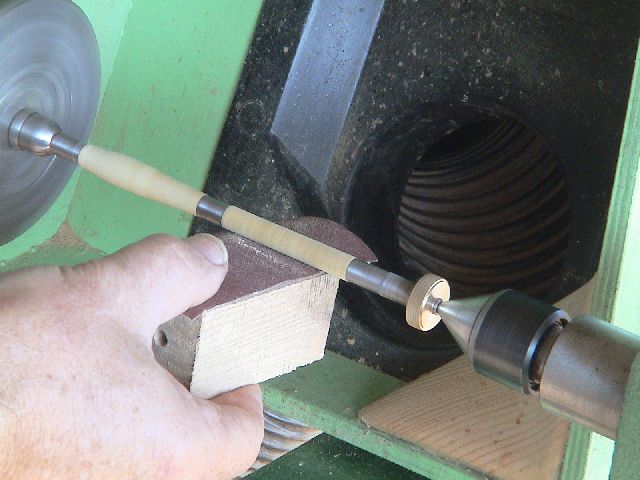Hi Chaps, I have had my 1st request!. Now, I'm a complete novice here so please have patience wit me!. So far, in the month I have had my lathe I've managed to turn several snowmen & a few dibbers for the gardeners out there from an old fence post, 2 chestnut bowls & an oak bowl (all green wood), a bowl out of some strange African wood that's got a deep red colour & starts with Padua but not sure of full name, a couple of pencil holders and a little pot with a snugly fitting lid out of an old table leg.
So, my mother wants a rolling pin. The stuff I've done so far has been achieved with the help of YouTube & inspirations from your good selves, no lessons taken so far, I'm just having a go & learning from my own mistakes really. I'm assuming that any wood will do as long as its well seasoned or kiln dried. Occasionally I chop down trees & I know that say oak or beech is heavier than perhaps conifer. Would there be a preferred species for something like this or shall I just use an old fence post or one of my remaining desk legs?. Would weight of the pin help?. How on earth will I get it completely straight along the length (16" requested)?. What finish would b suitable as it needs to be food safe (no chemicals please, she's a veggie/retired hippie!).
Well, I think that's it, love to hear from you & hopefully, on completion I may be daring enough to post a pic!.
Thanks in advance!,
Al.
So, my mother wants a rolling pin. The stuff I've done so far has been achieved with the help of YouTube & inspirations from your good selves, no lessons taken so far, I'm just having a go & learning from my own mistakes really. I'm assuming that any wood will do as long as its well seasoned or kiln dried. Occasionally I chop down trees & I know that say oak or beech is heavier than perhaps conifer. Would there be a preferred species for something like this or shall I just use an old fence post or one of my remaining desk legs?. Would weight of the pin help?. How on earth will I get it completely straight along the length (16" requested)?. What finish would b suitable as it needs to be food safe (no chemicals please, she's a veggie/retired hippie!).
Well, I think that's it, love to hear from you & hopefully, on completion I may be daring enough to post a pic!.
Thanks in advance!,
Al.


































